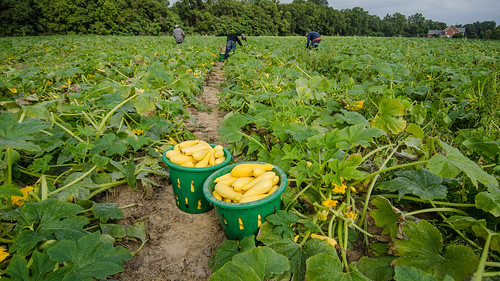
Throughout the course of the year, hired labor makes planting and harvesting of America’s farmland possible. On my family’s Illinois farm, we relied on both paid and unpaid friends and family to bring in our hay. Nearby farmers however relied on seasonal migrant labor to harvest vegetables.
Today I’m a statistician overseeing the analyses and publication of environmental, economic and demographic data on U.S. agriculture. In that role, my team produces data on farm labor that provides the basis for employment and wage estimates for all farm workers directly hired by U.S. farms. It is also used by the U.S. Department of Labor to administer the H-2A agricultural guest worker program.
The H-2A program allows farmers and ranchers to hire foreign guest workers for seasonal jobs critical to American agriculture. Agricultural labor is defined as any activity performed on a farm in connection with production of agricultural commodities. The Department of Labor relies on the data we provide to monitor labor demands in the farming sector at key points during the year. They can then make decisions related to the supply of guest workers to meet reported labor demands. And this is where our farm labor surveys comes in.
We reach out to farmers and ranchers to conduct an agricultural labor survey twice each year in April and October. In the past, we collected the data four times a year, once per quarter. Several years ago we combined the quarters and began collecting data only twice a year. With this approach, we were able to reduce both costs and demands on the survey participants, while still collecting and publishing quarterly information. Currently, the April survey collects data for a specific week in January and April, and the October survey collects data for a specific week in July and October. Data is collected for the week containing the 12th of each month.
One of the easiest ways for farmers to help ensure there is enough agricultural labor in the United States at critical times in the production cycles is to take part in the Agricultural Labor survey. So I ask all farmers who receive the survey form in a few weeks to take the time to fill it out. Only with accurate data can farmers, ranchers, policymakers and others make decisions that help the farm businesses and strengthen U.S. agriculture.
